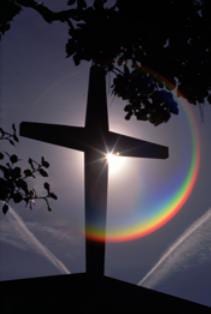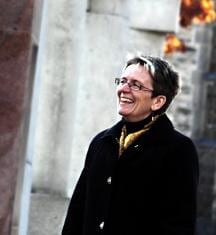
"What this does is it elevates religious freedom over and above other rights," says Andrew Lui. Credit: Thinkstock
While the Harper Conservatives have long been accused of thumbing their noses at global norms and scientific fact in the creation of environmental and crime-fighting policies, some experts are now criticizing the government for a similar approach to international human rights.
They say its plan to create an Office of Religious Freedom housed in the secular Department of Foreign Affairs and International Trade (DFAIT) is another example of following a roadmap long discarded by many of Canada’s allies and international policymakers.
“It’s coming at a time when the international human rights community, which includes policymakers, experts and advocates, have all moved in a direction that says there is a complex inter-relationship between different kinds of human rights violations and that they are imbricated,” says Doris Buss, an associate professor of human rights and international law at Carleton University and co-author of Globalizing Family Values: The Christian Right in International Politics.
“It’s really difficult to address one strand in isolation from the other, and very much as a community, experts agree that there is no hierarchy of rights. So this move seems to fly in the face of international human rights law and policy as it’s practised and understood by experts in the area.”
Members of the government have argued that they want to make the right to worship a fundamental part of Canada’s foreign policy, stating that attacks on religious freedom have increased.
The creation of the centre was first pledged during last year’s federal election.
Developing such an office in isolation of other policy areas gives an impression that Canada places religious freedom above other rights, says Andrew Lui, assistant professor at McMaster University and author of the forthcoming book Why Canada Cares: Human Rights and Foreign Policy in Theory and Practice.
“What this does is it elevates religious freedom over and above other rights in a way that it would not have been before,” Lui says. “It would give them a much more prominent voice above, say, gender and human rights, which is one division, or peace building and human security, which is another, and fast-track that particular issue over and above these regional concerns.”
There are also concerns about the usefulness of the office, which will have an annual $5 million budget within the department.
“Even if they set up a really impartial office that will defend people from religious persecution, but [will] also look at when religions themselves persecute, I still question what influence they’ll have,” says David Petrasek, associate professor at the University of Ottawa and former special advisor to the secretary-general of Amnesty International. “It’s one thing to issue a press release every time there’s an attack on Christians or a mosque is burned in the West Bank . . . Nobody notices that. Canadians are just so parochial thinking that this matters.”
Petrasek says America has a louder voice internationally, yet even then, there is no solid evidence the United States Office of International Religious Freedom has made any noticeable impact.
“It essentially comes out looking like a unilateral action,” Petrasek says. “Nobody is surprised or offended or forced to reconsider a policy just because of a statement issued by the Canadian government. My concern is that if you really want to do something about religious freedom in the world, this has got to be a multilateral effort.”
Petrasek says Canada should instead help bolster the United Nations special rapporteur on freedom of religion.
Buss agrees.
“They do incredibly great research; they stimulate often very important domestic and international changes with respect to human rights,” she says. “Putting $5 million towards the work of a special rapporteur would be very efficient and effective if one was concerned about those as policy objectives.”
Lui thinks the real reason for the creation of such an office lies closer to home.
“This is tied in to the Harper government’s domestic policy in terms of its targeting of specific minority groups, which we saw in previous elections,” he says.


 Why you can trust Xtra
Why you can trust Xtra


